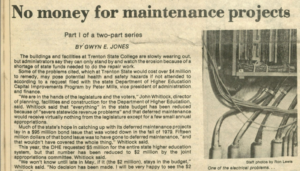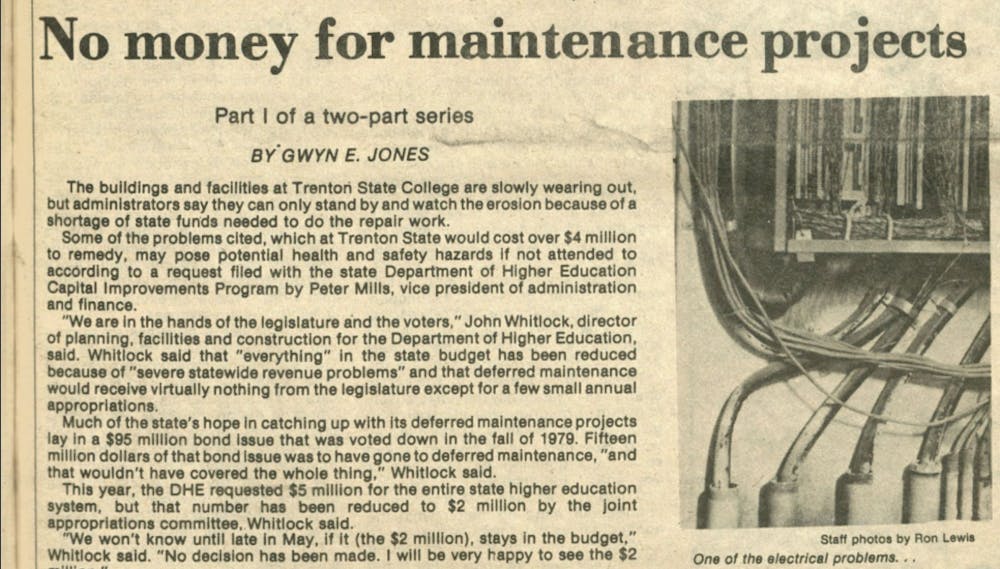By Emmy Liederman
Features Editor
In a May 1981 issue of The Signal, a reporter began a two-part investigation on why the College wasn’t receiving ample funds to fix electrical and plumbing issues, as well as other maintenance projects. It seems that this low funding boiled down to the state’s refusal to prioritize higher education.
John Whitlock, the director of planning, facilities and construction for the New Jersey Department of Education at the time, admitted that “the day of higher education being highly respected by the community is gone.” Today, the campus community continues to point out infrastructure and facilities that are need of repair.

The buildings and facilities at Trenton State College are slowly wearing out, but administrators say they can only stand by and watch the erosion because of a shortage of state funds needed to do the repair work.
Some of the problems cited, which at Trenton State would cost over $4 million to remedy, may pose potential health and safety hazards if not attended to according to a request filed with the state Department of Higher Education Capital Improvements Program by Peter Mills, vice president of administration and finance.
"We are in the hands of the legislature and the voters," John Whitlock, director of planning, facilities and construction for the Department of Higher Education, said. Whitlock said that "everything" in the state budget has been reduced because of "severe statewide revenue problems" and that deferred maintenance would receive virtually nothing from the legislature except for a few small annual appropriations.
Much of the state's hope in catching up with its deferred maintenance projects lay in a $95 million bond issue that was voted down in the fall of 1979.







